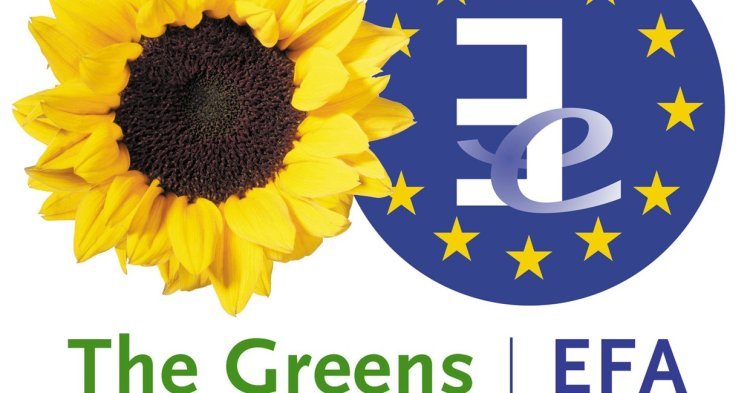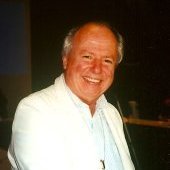There is the Transnational Radical Party with a trans-national European platform, but it has retained an Italian base. There has been a good deal of discussion within European federalist circles of creating a European Federalist Party, but efforts have largely been limited to one or two countries. The Greens have some of the ideological basis for a trans-frontier organization, but it is still at an early stage. The analysis of a recent book on European Green Parties, Green Parties in Transition is a useful contribution to the discussion. [1]
As the elections for the European Parliament are by proportional representation (rather than first-past-the-post), smaller parties are likely to have representatives in the European Parliament when they have none in a national parliament. This is particularly true of the Green-Ecology parties to whom the European elections have always been kind.
The birth of the European political ecology can be set symbolically as the 1974 campaign for the French presidency with René Dumont as the founding father. His 1974 campaign was the first time Les Verts had entered politics at the national level. Dumont was able to federate around his personality and his reputation as an agronomist specializing in African and Asian development a wide range of people who felt that the traditional French political parties were not dealing with the crucial questions of humanity’s future. His energetic campaign and strong personality in television presentations created the groundwork on which Les Verts could build a political movement . Dumont, with his red sweater and a glass of water to recall the dangers of water pollution, was a marked contrast with the more formal candidates. Dumont received only one percent of the popular vote, but he put Les Verts on the political map and set out the issues which would continue to be the political ecology framework.
Dumont was known in the general public for his prophetic 1962 L’Afrique Noire est Mal Partie, often republished for a decade in up-dated editions. He denounced the shortsighted agricultural and social policies of the newly independent African states — policies which have continued and which led to a constant decline in agricultural production. Dumont was a prolific writer, helped in his later life by a series of skilled co-authors. He would alternate a book on specific agricultural questions with a more general, usually polemical book. His book titles were often a political program in themselves. The collection of his 1974 campaign speeches is entitled A vous de choisir, l’ecologie ou la mort.
The French Left once called itself “internationalist”, but in practice, foreign policy rarely played an important role in its political programs. Dumont with his world experience and knowledge of interdependence gave to Les Verts a world agenda from the start. His was a call for world reform and for new, transformed North-South relations. Dumont had a wide influence on development thinking, stressing the need for popular participation and the possibility of taking small steps if they were in the right direction. He has no direct intellectual heirs, but his strong personality and convictions helped set the ecological agenda both in France and the world.
Dumont gave Les Verts a world agenda from the start
If René Dumont is the symbolic father,Petra Kelly (1947-1992) in Germany is the symbolic founding mother. Kelly came from the peace, anti-Vietnam War- disarmament movements. She stressed non-violent action, and non-violence was written into most Green “constitutions” as a core value. She was born in Germany but educated largely in the USA.
She was an active speaker in many international meetings. She had worked in the European Commission Secretariat and thus had a good knowledge of the workings of the European institutions. She was one of the founders of the German party Die Grunen in 1979 and was a member of the German Parliament from 1983 to 1990, having refused the practice of rotation of parliamentary membership. The idea that Green members should fill only half a term and then be replaced by their deputy had been an idea before the Greens were elected to Parliament.
Petra Kelly set the stage early for uniting ecological concerns with disarmament, social justice and human rights. Her views still merit reading in the collection of essays Thinking Green. [2] Unfortunately, her life was cut short in 1992 when she was shot dead by her partner, the former General and Green politician, Gert Bastian, who then killed himself — the ironies of non-violence advocates killed by violence — Gandhi, Martin Luther King, Petra Kelly.
Other Green leaders also came from the peace movement with its twin concerns of the time: the war in Vietnam and the dangers of NATO-Warsaw Pact conflict in Europe. Since few of the established political parties had these peace themes as goals, it was natural that peace groups and individuals gravitated toward the still flexible and diverse Green Parties.
Now, 35 years down the line, what is the role of non-violence and peace-making in the activities of the Green Parties? Green Parties in Transition is a well-presented effort to look at the Green parties in Europe and the developed West (Australia, Canada, USA) with chapters written on individual parties. The emphasis is on testing the pre-World War I ideas of Roberto Michels on the inevitable oligarchization of political parties. Michels had studied the European socialist parties which had anti-elitist ideologies and which were fast turning into parties with a small leadership base, following what he called “the iron law of oligarchy”. His 1911 book is still worth reading, perhaps asking if the ‘iron law’ also operates in peace movements. There is a 1962 reprinting of Political Parties probably available in larger libraries.
Thus Green Parties in Transition looks primarily at ‘grass-roots democracy’ within Green parties: the refusal of professional leadership, the rotation of elected leaders, the separation of party office and parliamentary mandate, gender parity for all party offices and open access to meetings. Some of these ideas have been taken by more traditional parties such as gender parity. In return, many Green parties take on the character of older parties as the Green parties grow in size, have larger budgets to administer, receive state funds and participation declines.
What is the role of non-violence in the Green parties today?
Have there also been changes in the ideological positions? What is the role of non-violence in the Green parties today, especially those which hold seats in parliament or are members of coalition governments with larger traditional parties? This issue was particularly acute in Germany, especially when the Green leader Joschka Fischer was Foreign Minister of the Socialist Chancellor Schroder. In 1993, the East German/West German Greens merged, each with a different political culture and were shortly faced with what policy to follow in the conflicts arising from the break up of Yugoslavia.
The Greens have tried to develop a pan-European policy that would be reflected in their actions in the European Parliament. The Greens have done better than some of the other European Parliament groups (Socialists, Moderate Right etc) but national styles and concerns are still strong. The peace work of the European Parliament does not make the media headlines. In fact, the work in most areas of the European Parliament rarely makes the headlines. However, the peace and conflict resolution efforts exist and would merit more attention. The members of the European Parliament have probably more individual scope for peace proposals than members of national parliaments.
Thus Greens and others can be leaders on such European conflict issues such as those of South Ossetia and Abkhazia. It is up to peace movements to develop policy proposals which can be discussed with members of the European Parliament. The June elections open doors for new action.


1. On 13 November 2009 at 12:46, by (Dr) James Page Replying to: Will the Greens stay non-violent and trans-nationally structured?
Replying to: Will the Greens stay non-violent and trans-nationally structured?
The title of this essay assumes that the Greens have in effect been a party of nonviolence. Readers might like to read the essay ’The Problem of the Pro-War Greens’, originally published in Australian Quarterly. The online version is available here: http://eprints.qut.edu.au/8590/
Follow the comments: |
|
